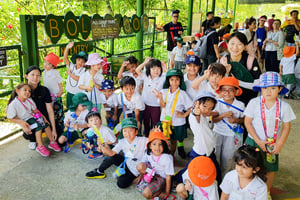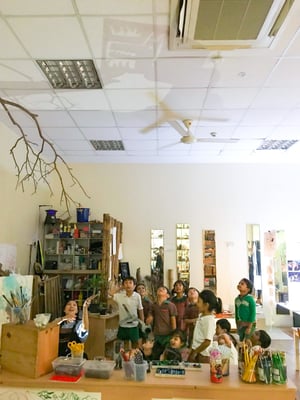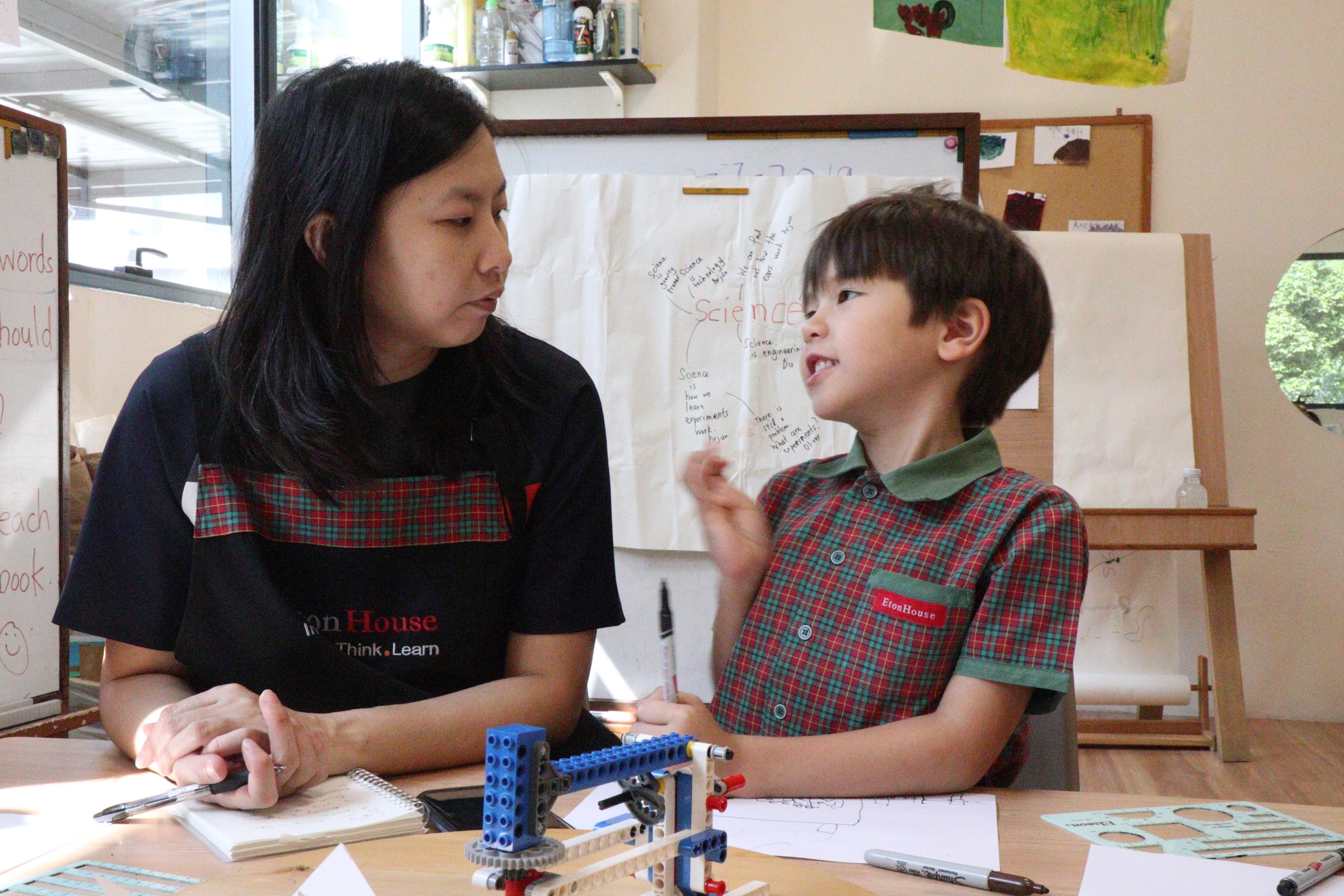Teaching is more than just a job, and the truth in the matter is, not anyone can be a teacher.
Our senior pre-school teacher Shirlee Lim from EtonHouse Pre-School Mountbatten 223 shared some insights with Channel NewsAsia on the challenges of her job and how she wishes there were more hours in a day so she can spend more time with her students!
1. What are the challenges of being a pre-school teacher?
 It is such a rewarding job that no matter what the challenges are, I feel every challenge presents an opportunity to make a difference and learn something new. What is really meaningful about my job is that I feel like I am contributing to a child’s life and am, in my own way, making a difference to society. We all know teaching is a rewarding job. We value and respect children, and the affection we receive from them in return is truly empowering.
It is such a rewarding job that no matter what the challenges are, I feel every challenge presents an opportunity to make a difference and learn something new. What is really meaningful about my job is that I feel like I am contributing to a child’s life and am, in my own way, making a difference to society. We all know teaching is a rewarding job. We value and respect children, and the affection we receive from them in return is truly empowering.
I am not saying it is an easy job. It is really demanding and I always feel that I can do more. Perhaps the biggest challenge for me is being comfortable and respecting myself for who I am, knowing that I am trying my best at any point in time.
I also wish there were more hours in the day. In a school day, almost every moment is a moment of decision-making. There is always so much going on. I go with the flow and follow the children’s thinking while looking out for opportunities to develop their theories or extend their ideas. It is definitely not easy to attend to all of the children at once. I wish I could spend more time with each child but I try and do the best I can. I am also happy to be supported by my colleagues. We have a good child-teacher ratio and it definitely helps to mitigate the challenges teachers face around time management, giving me greater bandwidth to reflect and be a stronger practitioner.
2. Why did you decide to become a pre-school teacher and stay as one?
Being a pre-school teacher is what I always wanted. So after having two children, I decided to do something for myself and studied at EtonHouse Education Centre for my early childhood diploma. It was then that I realised the significance of early childhood and the difference a good pre-school education can make to a child. I learnt so much from my mentors and teachers. It is an experience that touched my heart and had a profound influence on my work. With the realisation of the importance of relationships, respect and value for self and others and teaching beyond concepts (which is the prevalent view of education in our society), I never looked back.
Every day is a learning journey with children, colleagues and families. I think the beauty of the EtonHouse curriculum not only draws children towards learning but it also makes adults active learners in the process. The colleagues and culture really make a big difference because yes, there are ups and downs but you never feel alone when you are supported. I think it is a place where you feel like you are always growing with the professional development opportunities that are available for all teachers, mentors and coaches to guide us, and a curriculum that challenges us to reflect and think on a regular basis.
3. What are some of the misconceptions about pre-school teachers you'd like to debunk?
What I really want to stress is that we are not simply imparting knowledge and teaching for an outcome  (e.g. so that children can read and can add). We are doing a lot more than that. Children can think deeply beyond simple concepts. We are working with children who are strong and come with their own unique ideas and thinking — They can explore bigger ideas if they are empowered. I feel that relationships are very important in a child's life. I value that above anything else and I feel that the most important thing is that a child knows that he/she is valued and respected, and that the adults around them believe in them and are willing to see that they can do so much more. It is a job that requires one to be open-minded and a respectful listener, consistently reflecting and thinking on one’s feet while at the same time maintaining the balance and dynamics of the group.
(e.g. so that children can read and can add). We are doing a lot more than that. Children can think deeply beyond simple concepts. We are working with children who are strong and come with their own unique ideas and thinking — They can explore bigger ideas if they are empowered. I feel that relationships are very important in a child's life. I value that above anything else and I feel that the most important thing is that a child knows that he/she is valued and respected, and that the adults around them believe in them and are willing to see that they can do so much more. It is a job that requires one to be open-minded and a respectful listener, consistently reflecting and thinking on one’s feet while at the same time maintaining the balance and dynamics of the group.
I also want to emphasise that this is a specialised profession that requires knowledge, skills and a love for life-long learning. Early childhood educators should be valued and celebrated for the work that they do. It is not a role for everyone and to be an effective practitioner you need to have professional knowledge as well as the ability to be open-minded, flexible and ready to constantly upgrade your skills and knowledge during your professional journey.
A lot of our work also revolves around research, where we look into topics and ideas and that can interest the children. We may not always know everything, but we must have a breadth of knowledge to plan provocations and experiences according to the children's interests. So when we look at building an understanding on environmental sustainability, it is not just about a lesson, it is about nurturing habits of sustainability and a connection with nature. It should be a part of one’s everyday life, so we have to get children to see potential in recycled materials, think about sources of materials, understand waste and so much more.
Watch the full episode here:


-1.png)